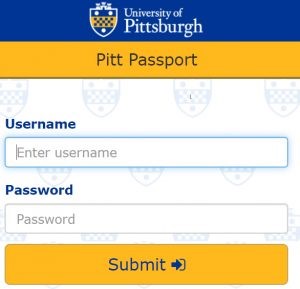The NIH changed the effective date of their new 2024 Public Access Policy from December 31, 2025 to July 1, 2025. Author accepted manuscripts (AAMs) resulting from NIH-funded research that are accepted for publication on or after July 1, 2025 must be made freely available in PubMed Central (PMC) immediately at the time of publication. The AAM is the manuscript version that has been peer-reviewed and accepted for publication. This is different from the final, published article that has been copyedited, formatted, and made available on the journal’s website. The current 12-month embargo period for depositing AAMs in PMC will no longer be accepted.
Learn @ HSLS: Python Bootcamp Week
Join us for Python Bootcamp Week*
Tuesday, June 10 through Thursday, June 12, noon-1:30 p.m., Online
Taught by Alexis Cenname
Join us for our Python Bootcamp Week, offering a comprehensive dive into Python programming. The bootcamp unfolds through a sequence of dedicated sessions that encompass the data analysis workflow. This includes importing and cleaning data, moving on to data manipulation, and employing advanced visualization techniques with the pandas and seaborn libraries. Each day’s workshop builds on the last, ensuring a comprehensive understanding and practical application of Python for data analysis.
Learners are encouraged to register for and attend all three sessions, as they build on each other.
Day 1: In “Introduction to Python, JupyterLab, and Jupyter Notebook,” you’ll familiarize yourself with the JupyterLab interface and learn to create integrated Jupyter notebooks.
Day 2: “Data Centric Python with pandas” delves into Python’s diverse data structures and how to explore datasets using the pandas library, enhancing your data analysis skills.
Day 3: Advance your skills in “Data Exploration with pandas and seaborn,” focusing on data summarization and the art of visualization with seaborn.
HSLS Resources to Support Pitt Courses
Summer is traditionally a time when faculty work to review, redesign, or develop new courses for the fall. HSLS supports this work by licensing relevant resources and providing opportunities to collaborate with liaison librarians.
HSLS hosts an online collection that includes high-quality educational resources. Faculty can use content from the collection to build courses more efficiently. Additionally, highlighting complementary study resources to students increases equitable access, limiting pressure to purchase outside study tools. As an example, in 2023 HSLS partnered with health sciences anatomy instructors to license Acland’s Video Atlas of Human Anatomy. Course instructors can link to videos to complement course content, and students can be directed to the self-assessment exams for extra practice.
Remote Access to HSLS Resources
Are you working from home or somewhere off-campus and need access to an e-journal article or an e-book at 4 a.m. on a Sunday? No problem! You can access HSLS resources remotely.
Pitt Passport
Remote access for library resources requires a valid Pitt username and password, plus a second method of verification through an app or phone line. This is called multifactor authentication, which can be done in three steps. If you have problems setting up multifactor authentication, contact the Pitt IT Help Desk at 412-624-4357. Once you’ve successfully set up multifactor authentication, you won’t have to do it again.

Now you are ready to access resources remotely. To do this, direct your browser to the HSLS website and click on the desired resource. You’ll be redirected to the Pitt Passport login page. Log in with your valid Pitt username and password. Once you are logged in, you will be able to access HSLS resources in your browser as if you were working on-site. If you are able to log in to remote access but are having trouble accessing an HSLS resource, please contact HSLS Ask a Librarian.
Happening at Falk Library in June
Visitors to Falk Library, located in Alan Magee Scaife Hall, are encouraged to check out these opportunities and displays:
On Display
70 Years of “Scope and Scalpel” (Display Cases, Main Floor and Lower Floor)
Scope and Scalpel is a unique Pitt Med tradition in which graduating students produce a full-length musical production parodying their medical school experience. Memorabilia ranging from the first med student production of “PSM IV” in 1955 to the most recent productions are on display in honor of the PittMed Class of 2025’s spring production The Little Murmur. Playbills, posters, video, and audio recordings from the Special Collections of Falk Library show off the spoofed movies and TV series over seven decades.
HSLS Staff News
The HSLS Staff News section includes recent HSLS presentations, publications, staff changes, staff promotions, degrees earned, and more.
News
HSLS welcomes Candise Branum, MLS, AHIP, who serves as a Research and Instruction Librarian and as the liaison to Pitt Public Health. She previously worked at Gonzaga University as an Assistant Professor and the Health Sciences Librarian, as well as a functional liaison for research data management. She brings extensive expertise in teaching, creating online educational content, providing reference services, and building collaborative partnerships with faculty.
